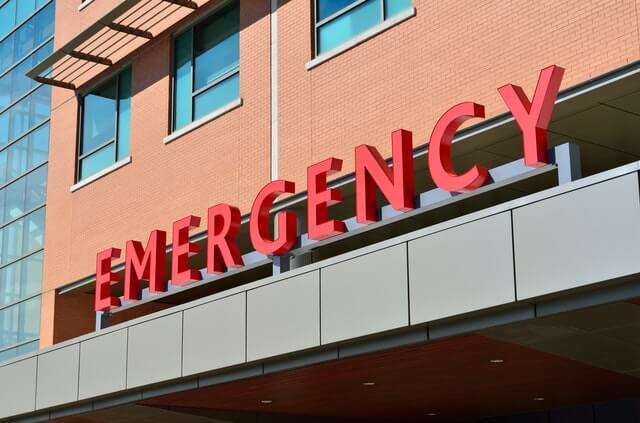Should judges, handling medical-related disputes, undergo special education to make their judgments fact-based?

________________________________________________________________________________
This Blog is written by Anusuya Ghosh from KIIT School of Law, Odisha. Edited by Pranoy Singhla.
________________________________________________________________________________
ABSTRACT
It’s critical to understand what defines medical malpractice. A doctor owes a set of responsibilities to the patient who comes to him with an illness. Negligence is the result of a breach of this responsibility. A fundamental understanding of how medical negligence is assessed in India’s various judicial courts will allow a practitioner to practise medicine without fear of being sued for claimed medical carelessness.
INTRODUCTION
Consider the exact circumstances of a case: who did what to whom. Judges must be open-minded about such facts. They must make factual determinations based only on the evidence offered by the parties, and they should not opine about the facts before determining the case.
It’s evident that abandoning this kind of impartiality. Even the judges need to go through a proper medical history before giving any judgement.
SIGNIFICANCE OF FACT-BASED JUDGEMENT
If the judges give judgement through fact based it may contradict with the actual issue. It can also be concluded that if the Hon’ble Judge has no Idea regarding the disease it may harm the life of the person then it can also attract A.21 of India Constitution[1] which is a fundamental right. Although Clinical guidelines’ credibility is based on deploying and evaluating the best evidence, which is frequently of varying quality and credibility.
Clinical guidelines are continually challenged by dissident expert reinterpretations of existing research as well as new, relevant evidence that was not accessible when the recommendations were developed. Furthermore, no matter how evidence-based the formulation process is, a guideline may not be easily applied to a specific patient’s care.
IMPACT
Before giving any judgement it is mandatory for the judges to have a proper guidance regarding patient health. A life is more important than anything. A scientific practitioner can be referred to as a witness to present proof in the courtroom docket, and the proof furnished with the aid of using medical doctors can help the Court in making knowledgeable and truthful decisions. Giving proof in a courtroom docket may be a frightening experience, however, understanding the protocols can assist scientific practitioners to navigate the prison system[2]
In legal proceedings as a state funded lawyer to represent those who need a guardian ad litem or litigation friend (primarily children and mentally incapacitated people), or may be asked by the court to assist as an amicus. The starting point for lawyers and doctors alike is that intentionally touching a person is unlawful—the civil wrong of battery or even the crime of assault—unless that person has consented or there is other lawful authority. Accordingly, the court’s help for “authorising” invasive scientific methods is the handiest approach wherein it could be proven that the person affected person lacks the potential to consent.
Regardless it is a need for a judge to have a proper knowledge about patient history regarding medical specially because under Indian law no one should get injustice whosoever it is it is the fundament for everyone to get proper justice if the judges give judgement with regards to facts of the cases then it may termed as partial because facts of the case are just a part of beginning of the case there are many more to go if we don’t look after that part then it may be difficult or create nuisance or give a bad precedent[3] in the society.
Simultaneously due to simpler laws and concerted government efforts to educate its citizens about their legal rights, there has been rising awareness amongst all classes of people of their legal rights. This awareness of rights coupled with pro consumer legislation and judicial approach has emboldened citizens to approach judicial fora for redressal of their grievances. On the downside this has also resulted in citizens approaching judicial fora with a view to try their luck in litigation in facts that do not justify any such action being entertained[4]
CASE LAW
The basic principle relating to medical negligence is known as the BOLAM Rule. This was laid down in the judgment of Justice McNair in Bolam vs. Friern Hospital Management Committee (1957) 1 WLR 582 as follows:
“Where you get a situation which involves the use of some special skill or competence, then the test as to whether there has been negligence or not is not the test of the man on the top of a Clapham omnibus, because he has not got this special skill. The test is the standard of the ordinary skilled man exercising and professing to have that special skill. A man need not possess the highest expert skill. It is well-established law that it is sufficient if he exercises the ordinary skill of an ordinary competent man exercising that particular art.”
Bolam’s test has been approved by the Supreme Court in Jacob Mathew’s case.
Judges are not experts in medical science, rather they are lay men. This itself often makes it somewhat difficult for them to decide cases relating to medical negligence. Moreover, Judges have usually to rely on testimonies of other doctors which may not necessarily in all cases be objective, since like in all professions and services, doctors too sometimes have a tendency to support their own colleagues who are charged with medical negligence. The testimony may also be difficult to understand, particularly in complicated medical matters, for a layman in medical matters like a Judge; and (2) A balance has to be struck in such cases. While doctors who cause death or agony due to medical negligence should certainly be penalized, it must also be remembered that like all professionals doctors too can make errors of judgment but if they are punished for this no doctor can practice his vocation with equanimity. Indiscriminate proceedings and decisions against doctors are counter productive and serve society no good. They inhibit the free exercise of judgment by a professional in a particular situation.[5]
ANALYSIS
It is not at all accepting as a mere fact about insufficient knowledge regarding medical issue for a judge. Although Judges are also human they might do mistake they could also interpret anything in a wrong way for that there is correction but it should not be at the stake of someone’s life. Court can’t jeopardise a life of someone. A fact based judgement should include reasonable nexus regarding the actual circumstance of the patient. Fact based judgement can be granted if the knowledge and if it is reasonable with the actual circumstance. A judge should have a proper education regarding the medical issue at-least a general knowledge should be present otherwise it may harm the judicial system but putting someone’s life in jeopardy.
CONCLUSION
Under Indian Legal system the main priority is to give justice. A Judge is someone under whose one Order a huge amount of impact can be put upon someone’s life as well as whole society. Therefore, it can be concluded that a proper knowledge of medical related issues should have to be deal carefully. A judgement should not only be based on fact based abut also on proper reasonable ground where everything must be scrutinized. what is reasonable and what is unreasonable is a matter on which even experts may disagree. Also, they may disagree on what is a high level of care and what is a low level of care. The law, like medicine, is an inexact science. One cannot predict with certainty an outcome of many cases. It depends on the particular facts and circumstances of the case, and also the personal notions of the Judge concerned who is hearing the case. However, the broad and general legal principles relating to medical negligence need to be understood.
REFERENCES
[1] Right to Life A 21 of Indian Constitution.
[2] https://www.lexology.com/library/detail.aspx?g=abb547bf-e396-4bc4-8674-b75a02a0ddb4.
[3] In simple terms, a judicial precedent is a judgement of an Indian court of law that is referenced as authority to decide a comparable set of facts and that the courts might consider as a source for future decision-making.
[4] https://asiindia.org/medical-negligence-the-judicial-approach-by-indian-courts/.
[5] Martin F. D’ Souza vs Mohd. Ishfaq on 17 February, 2009.

